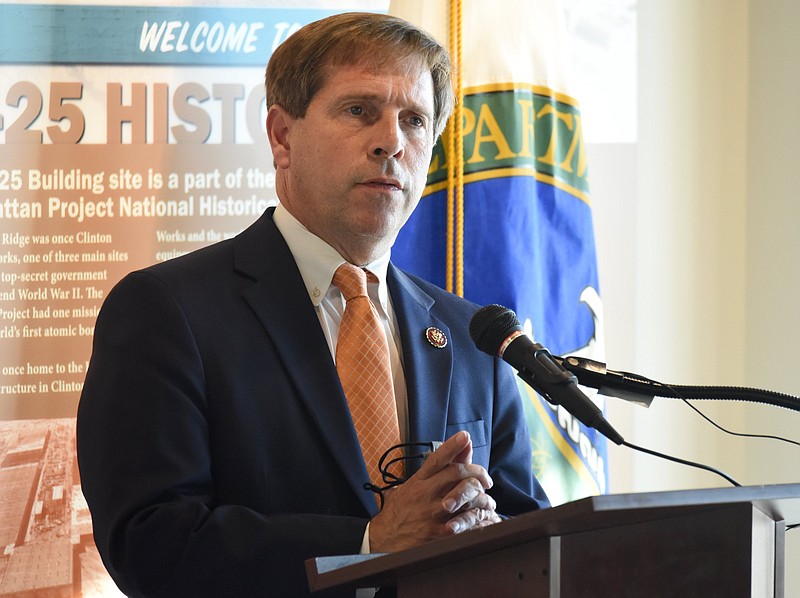A proposal by the White House to require banks to report more account deposits or withdrawals to the Internal Revenue Service is facing both political and business opposition from critics who worry it could jeopardize confidence in U.S. banks and violate personal privacy.
U.S. Rep. Chuck Fleischmann, R-Chattanooga, said Wednesday he is co-sponsoring the Protecting Financial Information Act to prohibit the U.S. Treasury from mandating banks, credit unions and other financial service providers to report transactions of $600 or greater.
Currently, financial institutions are only required to disclose cash transactions of $10,000 or more to the Department of the Treasury, but the Biden White House wants to require more bank disclosures to help capture an estimated $460 billion of unpaid taxes, primarily from wealthy Americans.
"Forcing financial institutions to turn over records of all Americans' transactions of $600 or more violates the financial privacy of every American and will only increase IRS harassment of working Americans and businesses," Fleischmann said in a statement.
U.S. Treasury Secretary Janet Yellen said the United States needs more information from taxpayers to crack down on those who do not pay what they owe.
"This is a very serious policy proposal," Yellen said at a congressional hearing last month. "We have a $7 trillion estimated tax gap that we have a great deal of tax avoidance by individuals and businesses - typically very high-net worth, high-income individuals and businesses that have opaque sources of income that are not paying the taxes that are due."
Treasury officials say the effort is not about tracking individual transactions and is not aimed at lower- or middle-class households. The $600 threshold was chosen to weed out accounts that are generally dormant or get little use, such as children's accounts, while still giving the government the broadest possible visibility. Administration officials say audit rates for taxpayers who earn less than $400,000 per year will not go up.
"This is about making sure the top 1 percent can't evade $160 billion per year in taxes," said Alexandra LaManna, a Treasury Department spokeswoman.
But Tennessee and Georgia bankers and business groups object to the proposal, which they say could undermine public confidence in the privacy of bank transactions and could be misused by the IRS.
"People and businesses have trusted our states banks for generations," said Colin Barrett, president of the Tennessee Bankers Association. "Now some in Washington seek to destroy that trust. We will do everything in our power to prevent this proposal from becoming reality."
In a recent Senate hearing, U.S. Sen. Bill Hagerty questioned the ability of the IRS to keep the information confidential. According to the U.S. Treasury Department, the IRS experiences 1.4 billion cyber attacks annually.
"This wrongheaded proposal violates the privacy of almost every American in the name of catching wealthy tax cheats," says Joe Brannen, president of the Georgia Bankers Association. "Consumers, small business owners and families should rightly be concerned that their personal financial information will be turned over to the IRS with no assurance their data will be protected from cyber criminals or restricted to this one idea. This costly and intrusive proposal is loaded with harmful potential."
Chris Clark, president of the Georgia Chamber of Commerce, denounced the bank reporting requirement as a "blatant overreach by government that will place an incredible burden" on banks and businesses.
- Compiled by Dave Flessner
